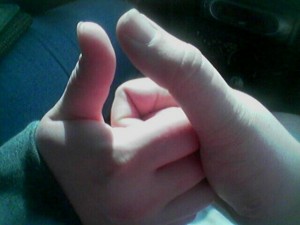Love-Life Tip: Don’t Control Your Lover
 Control in any form destroys love. Why? Because it limits and interferes with the freedom that love requires to thrive. The most common reason for trying to control a lover is to avoid getting hurt.
Control in any form destroys love. Why? Because it limits and interferes with the freedom that love requires to thrive. The most common reason for trying to control a lover is to avoid getting hurt.
My old mentor used to say, “Where did you get the idea you could be in love without getting hurt?” WOW, was that a rude awakening.
Up until that time my approach to love was tailored to defensively avoid hurt in any way possible. Because of the fact that a love relationship involves two people there is bound to be disagreements and differences of opinion.
Isn’t the real reason you would look for a love relationship, to be in love with a separate person who cares enough to love you in his or her own unique way? Otherwise it’s like being with yourself all the time, right?
So if you don’t believe this and you’re used to trying to protect yourself in a love relationship, chances are you’re practicing some form of control. Let’s look at some common ways of trying to psychologically control a lover.
One of the most common ways to control a lover is by using guilt. Something like, “look at what you’ve done to me.” The emphasis here is on making your lover feel bad by focusing on the bad feelings or consequences you are suffering as a result of something he or she did.
A steady diet of guilt is toxic and steadily diminishes a person’s self-esteem. Another common way of trying to get emotional control is through fear. This is usually accomplished with ultimatums or threats.
Fear has a paralyzing effect on a person and like guilt it tends to erode self-esteem over time. A lover who is afraid is usually defensive and chronically worried. It is very difficult to be open and vulnerable under these conditions.
Another form of psychological control that commonly shows up in a love relationship occurs through shaming, blaming, or chronic criticism. Putting a lover down with chronic criticism, blame, or shame is a way of using judgment to create a limiting self-judgment that usually shows up as a bad feeling about oneself as a ‘person.’
Then of course there is control through possessiveness. Here control is exercised by the imposition of ownership in the relationship. “You belong to me.” However romantic this is made to look as an outgrowth of jealousy based on love, its true essence is always an effort to cure personal insecurity through dominance.
The last two ‘techniques’ of exercising control in a love relationship operate as forms of dependency and addiction. A more subtle form of control can show up as an effort to create a dependency and eventual dysfunction by taking too much care of a lover.
Some people find it difficult to tolerate the vulnerability that equality in a relationship requires, instead they prefer the dysfunctional lover who gives up personal competence to stay with a care-giving lover. The last type of control I’ll mention is the type that occurs when sex is used as a method of addicting a lover.
Sex as a very powerful motivation, even for people who work hard to reduce sexual attraction. It can become a basis for addiction. In the right hands, sexuality as both excitation and orgasm, can be transformed into a formidable method of controlling a lover.
Remember, if you have to control your lover to be loved, your lover has no real love for you. Freedom, the opposite of control, is needed so that your lover can choose to give you love. Love freely given is the only love that’s real. Otherwise holding hands will turn into a thumb war!
Comments? Welcome. Dr. Tom Jordan
